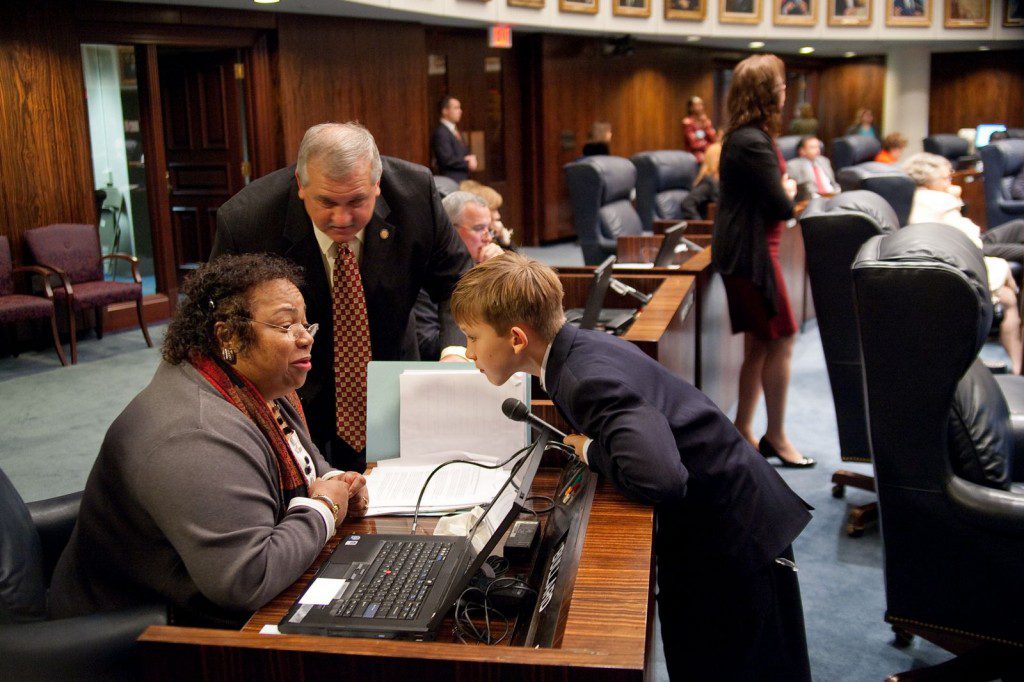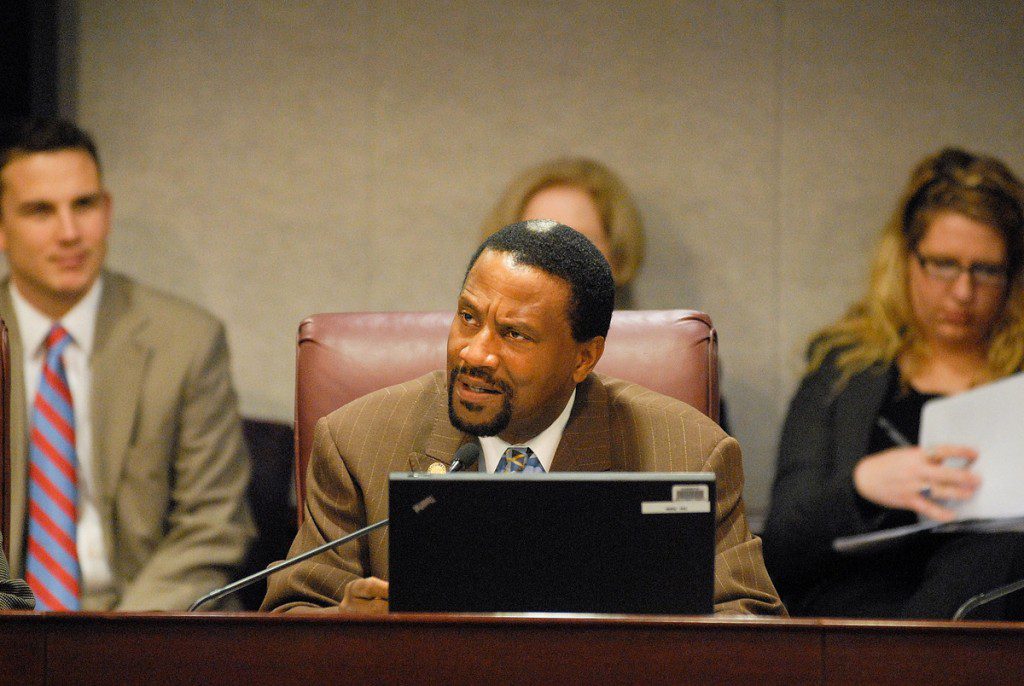Florida State Senator Larcenia Bullard says she’s alive because of the power of prayer — and that’s why she’s fighting for the right of Florida students to pray.

Recently, she was brought to tears during debate over proposed state legislation that would allow student-initiated prayer in all Florida schools.
“Had it not been for prayer, even to my doctors who said I will never question your faith again, I would not be sitting here today,” Bullard told her fellow legislators.
She told them prayer saved her life and now she wants public school students to be able to pray at school events. Student-led prayer wouldn’t happen during regular school hours, she says, but could be held at secondary school events such as football games and graduation, reports Whitney Ray for the Capital News Service.
“The prayer bill allows student governments to nominate a student to pray. The content of the prayer would be left up their discretion,” writes Ray. “The ACLU and Anti-Defamation League say the state is too diverse to offer a prayer to just one religion and say if the bill passes, lawsuits would abound.”
The bill’s sponsor, Senator Gary Siplin (D-Orlando), says it’s about freedom of speech.
“We ought to formalize it some way to allow the student to get together and have some type of benediction an invocation,” said Siplin.
“The bill passed the committee with just one no vote,” reported Ray. “Its next stop is the Senate Judicial Committee, where opponents expect a closer vote. The bill has bipartisan support, but it also has bipartisan opposition. Similar bills have been filed almost every year over the past 20 years. The bill sponsor believes this year it will pass because he’s seeking legal advice to draft the bill to withstand court challenges.”

A proposal by a Florida state lawmaker to allow “inspirational” messages, including prayer, on a voluntary basis at some school events is drawing the opposition of several major lobby groups on legislative issues, including the American Civil Liberties Union and the Anti-Defamation League.
Siplin’s bill would allow school districts to allow prayers that not involve school personnel.
But “It coerces religion,” says Anti-Defamation League lawyer David Barkey. Ron Bilboa of the American Civil Liberties Union said Silpin’s idea would put religious expression up for a popular vote among students and that cannot be allowed, reports Bob Unruh for the internet website WorldNetDaily.
“We must guard against the promotion or endorsement of one particular set of religious beliefs over others,” Bilboa told Unruh.
Siplin, whose proposal is supported by a similar bill in the Florida House of Representatives, has high hopes for the legislation.
“The majority of states already have laws enacted that permit prayer or silent meditation – and in some instances, mandate prayer or silent meditation. I simply want to empower our school districts to allow students to exercise their rights to freedom of expression and freedom of religion in the school setting,” he told Unruh.
Banning school prayer was a result of the U.S. Supreme Court’s 1962 Engele v. Vitale decision.
“Since then, that pronouncement has been interpreted by a number of bodies to mean that there is a virtual prayer ban on school property,” writes Unruh. “In Florida, one district fought a multiple-year court war after officials imposed rules that banned even ordinary phrases such as ‘God bless’ from their campuses. Ultimately, officials in the Santa Rosa County, Fla., School District agreed to gut an ACLU-inspired consent decree they imposed on students and faculty several years ago and pay hundreds of thousands of dollars in legal fees to settle a legal challenge to their decision.
As a result of that settlement, Santa Rosa teachers describe literally being “forced to pray in school closets to avoid contempt of court charges,” writes Unruh. The ACLU has vigilantly policed the school’s compliance.
“The restrictions were so draconian,” writes Unruh, “that employee Michelle Winkler in 2009 was charged with contempt after her husband, who is not employed by the district, offered a meal prayer at a private event in a neighboring county. During testimony in the case, she also described how she and a co-worker, who recently had lost a child, had to hide in a closet to pray.
In another contempt of court case brought by the ACLU, “former Pace High School Principal Frank Lay, now retired, and Athletic Director Robert Freeman were tried for contempt after the ACLU demanded that they be punished. Freeman had been accused of offering a blessing for a lunch for some 20 adult booster club members.”
“While the battle over their own rights were raging in court, members of the 2009 graduating class at Pace expressed their objections to the ACLU restrictions on statements of religious faith by rising up en masse at their ceremony and reciting the Lord’s Prayer.”
That might be one reason that the ACLU is so adamant that students not be permitted to vote on whether to pray.


